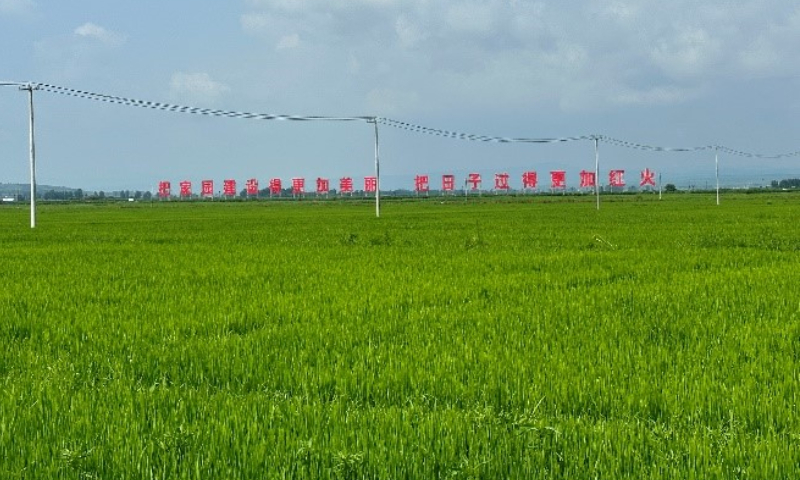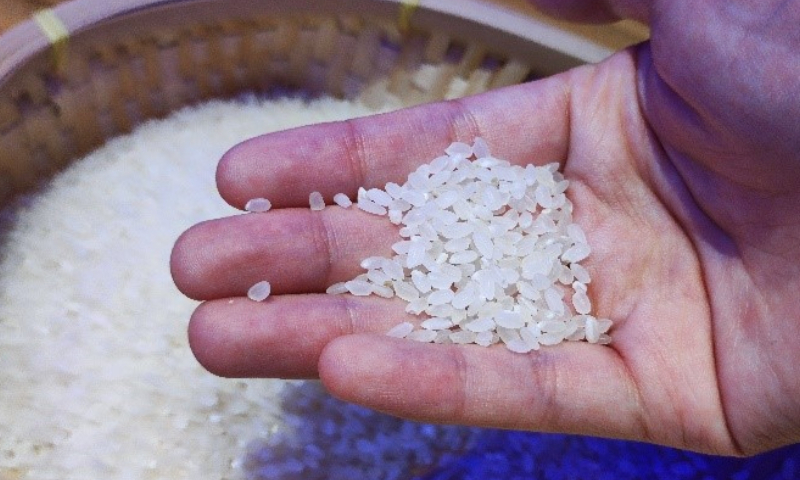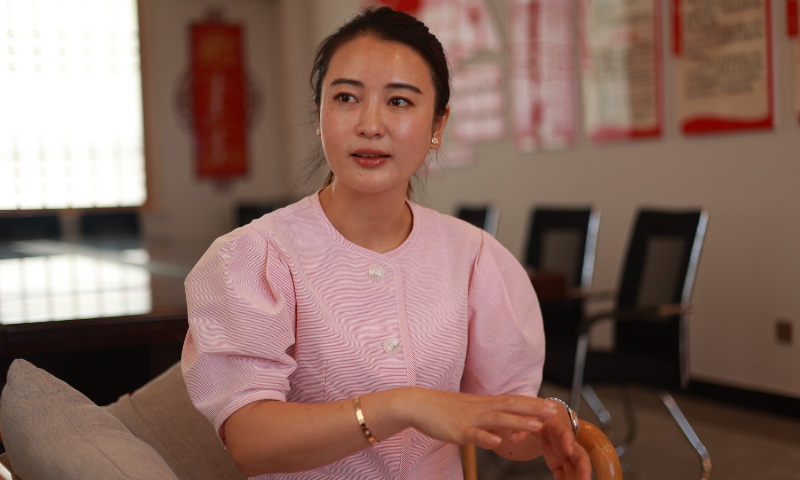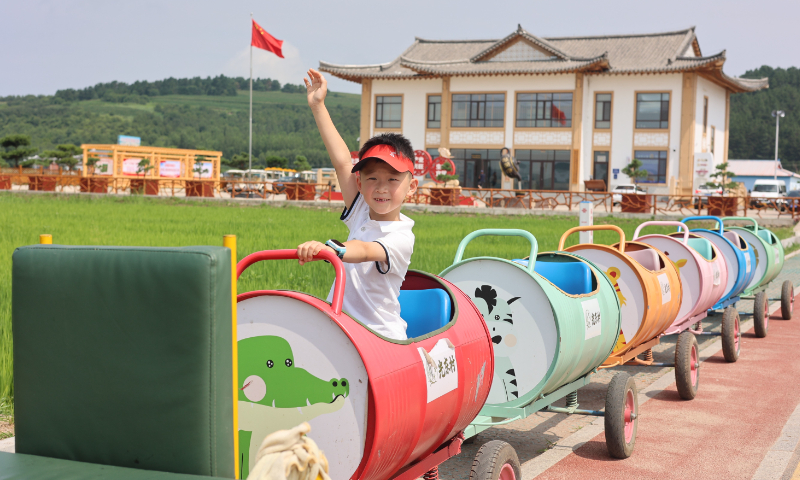Village featuring Korean folk customs finds hope, prosperity through rural revitalization

Rice paddies in Guangdong village Photo: Zou Jiyu
In the paddy fields, the seedlings sway in the wind and visitors are met with fields of intoxicating green.
Eight years ago, Chinese President Xi Jinping visited Guangdong village, an ethnic neighborhood in Yanbian Korean Autonomous Prefecture in Northeast China's Jilin Province, stressing that Jilin should give priority to ensuring food security, persistently ensure robust grain production, accelerate the transformation of agricultural development and create more experiences in modern agriculture development.
The village, being home of China's largest Korean ethnic minority population and center of the Changchun-Jilin-Tumen Development Pilot Zone, has witnessed a dramatic change through exploring a new path to help rural industries in the past eight years. Based on rice planting, the village is in a full swing of developing rural tourism featuring food and experience with local flavor.
Soaking up the amazing views of the vast expanses of stepped green rice paddies with modern agricultural equipment hard at work, a Global Times reporter came to discover the secret of this fertile land.
"The region's geographical constraints make this rice exclusive to cultivation in Yanbian," said Jin Jun, founder of the "Maxida" rice brand.
"Maxida" means "delicious" in Korean. The company has been dedicated to assure quality at the source, selecting rice varieties that are chewy and flavorful, uniquely suited to the region's natural environment.

"Maxida" rice of Guangdong village Photo: Liao Qinsong
Located in Pinggang river valley, Guangdong village enjoys a natural foundation for agricultural development thanks to its advantageous geographical situation.
How to promote rice from Guangdong village to more areas in both domestic and international markets? Jin has pondered relentlessly on this question after being inspired by President Xi's words.
Eight years ago, walking along muddy embankments to closely observe the rice's growth, Xi emphasized the significance of establishing food brands, ensuring good prices, measurable benefits, and enhancing the added value of agricultural products during his inspection.
"In the initial stages, a lack of brand recognition poses a difficulty for Maxida to break through," Jin told the Global Times.
Maxida has been constantly improving its production process to make its rice whiter and more appealing, while also enhancing its quality with better packaging. The company has also increased its brand awareness and presence through various channels, both online and offline, to share the story of Guangdong village's rice and showcase its authenticity and excellence.
Currently, Maxida rice has become a signature product of Guangdong village, attracting many customers, not only enjoying acclaim within China but also finding its way to international markets, including Australia, South Korea, and Japan, giving Guangdong village's rice a burgeoning reputation.
"In the future, we will utilize big data technology to monitor rice quality, providing relevant data to customers from distant regions, allowing them to directly observe the rice's condition in the fields, to increase their confidence in our rice," Jin stated with a smile.
Prime destination for rural tourism
With its stunning natural scenery, residents in Guangdong village are determined to develop the tourism economy. Yang Lina, General Manager of Yanbian Guangdong Korean Folk Tourism Service Company, has been pioneering rural tourism in the village Since 2011.

Yang Lina, General Manager of Yanbian Guangdong Korean Folk Tourism Service Company Photo: Ma Wenxin
The village has become a prime destination for rural tourism in China, where visitors can enjoy the scenic beauty of the countryside, the rich culture of local ethnic groups, fun activities in the agricultural park, and the cozy comfort of a homestay ranch. The village's unique charm and authenticity have attracted many tourists, who come from far and wide to experience the essence of this ethnic region.
However, developing rural tourism is not without challenges.
"I faced a lot of misunderstandings from local villagers when I started this business. I had to talk to every household personally, and explain to them my vision and goals. I wanted to create more jobs for them, so they could stay close to their home and family," Yang said, smiling as she remembered the early days.

Tongye Amusement Park in Guangdong village Photo: Ma Wenxin
Nowadays, Guangdong village is impressing visitors with its distinctive ethnic appeal. One of the most popular cultural and tourism projects is the Tongye Amusement Park, which offers immersive experiences such as the Rice Paddy Parent-Child Park and the Rice Paddy Mini Train. This project integrates tourism and agriculture, and has not only made Guangdong village famous, but also increased the income of the villagers significantly.
"Now we have small coffee shops and homestays in the village, and more young people are willing to stay here," Yang said happily, when discussing the outcomes of rural revitalization. The success of the rice brand and tourism projects have not only brought profits to local enterprise, but also created opportunities for entrepreneurship and employment for villagers, ensuring that everyone benefits from the development.
"We aim to utilize Guangdong village as a platform to promote the high-quality agricultural products from neighboring villages, fostering development and prosperity among more communities," Yang confidently shared her vision for future development.
Jiang Bowen, Xu Weiran, Liao Qinsong, Zhu Yilu, Ma Wenxin and Zou Jiyu from Communication University of China contributed to the story

